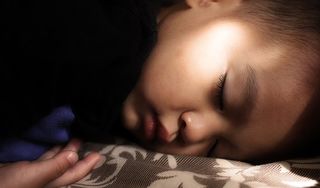
Sleep
Not All Children Count Sheep: Racial Differences in Sleep
Research finds that ethnic and racial minorities have worse sleep.
Posted July 19, 2019

Parents often suggest counting sheep when their children struggle to fall asleep at night. But what if counting sheep is not enough? What if the reason children have trouble sleeping is related to their race?
This is more than a hypothetical. How much and how well children sleep does seem to be tied to race. In fact, as early as infancy, Black youth sleep less than their White counterparts. Moreover, these differences continue through adulthood.
Not only do Asian, Black and Latinx individuals sleep less and more poorly than their White counterparts, but the nature of sleep may also differ. For example, researchers have found that Black adults spend less time in deep (slow-wave) sleep compared to White adults.
Why might this be? Emerging research suggests that one reason is discrimination stress. The stress of being treated differently or unfairly due to one’s race has been found to be related to sleep in a handful of studies focused on children and adolescents. Discrimination is a form of stress, and stress has a negative impact on sleep. Research on ethnic/racial minority adolescents finds that discrimination stress is associated with sleeping less and more poorly. This is particularly troubling given that adolescents are typically already sleep-deprived.
But the association between discrimination and sleep does not end in adolescence; there is also research among college students and adults which finds that at least part of the reason why ethnic and racial minorities suffer from sleep disturbances is because of experiences with discrimination.
Of course, discrimination is not just interpersonal. It also exists at structural and institutional levels and presents itself in the form of housing and neighborhood contexts. For example, residents in urban environments and neighborhoods that are more disadvantaged are more likely to contend with crowding, noise, and poorer physical housing conditions, all of which have been found to compromise sleep. Therefore, the research citing a link between sleep and discrimination likely underestimates the multitude of ways in which inequality is manifest in the daily lives of ethnic and racial minorities.
Sleep is a complex bio-behavioral necessity that is fundamental to health and human functioning. Sleep has been associated with cognitive abilities, mental functioning, mood, academics, executive functioning, and a host of physical and mental health outcomes. Therefore, the racial differences in how much and how well children sleep are also likely linked to differences in academic achievement, health, and mortality.
What can we do? There are programs and interventions that have focused on sleep and sleep hygiene (the sleep-related behaviors that individuals engage in, like having a bedtime ritual, going to bed at the same time every night, or presence and use of electronics in the bedroom); however such strategies are not likely to address sleep disturbances related to issues of discrimination and structural inequality. Instead, for our children, regardless of ethnicity, race, socioeconomic position or neighborhood condition, to achieve sleep, health, and academic opportunity and parity, we need to aim for a society that values our children equally. When basic human needs like sleep are disparately divided along socially constructed lines, interventions targeted at individual behaviors will not result in equitable outcomes. We need to strive for a society where simply counting sheep is an antidote to childhood sleep disturbances.
References
Guglielmo D, Gazmararian JA, Chung J, Rogers AE, Hale L. Racial/ethnic sleep disparities in US school-aged children and adolescents: a review of the literature. Sleep Health. 2018;4(1):68-80.
Hale L, Do DP. Racial differences in self-reports of sleep duration in a population-based study. Sleep. 2007;30(9):1096.
Hicken MT, Lee H, Ailshire J, Burgard SA, Williams DR. “Every shut eye, ain’t sleep”: The role of racism-related vigilance in racial/ethnic disparities in sleep difficulty. Race and social problems. 2013;5(2):100-112.
Mezick EJ, Matthews KA, Hall M, et al. Influence of race and socioeconomic status on sleep: Pittsburgh Sleep SCORE project. Psychosomatic medicine. 2008;70(4):410.
Yip, T. Cheon, Y., Wang, Y., Cham, H., Tryon, W. & El-Sheikh, M. (2019). Racial disparities in sleep among ethnic minority adolescents: Daily associations between discrimination and sleep, Child Development. https://doi.org/10.1111/cdev.13234

